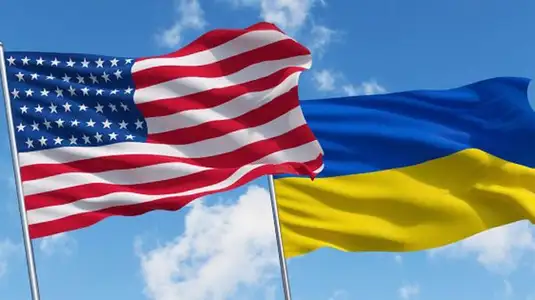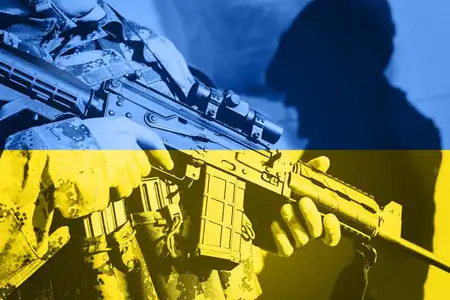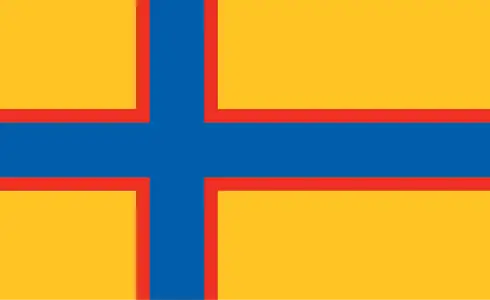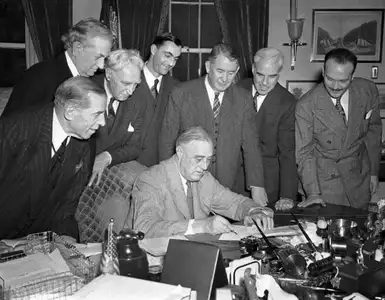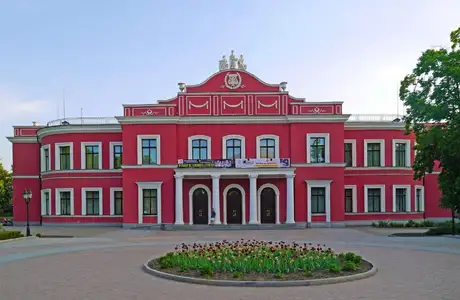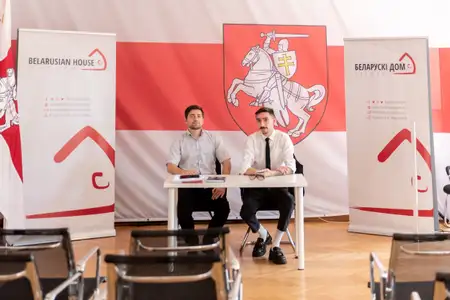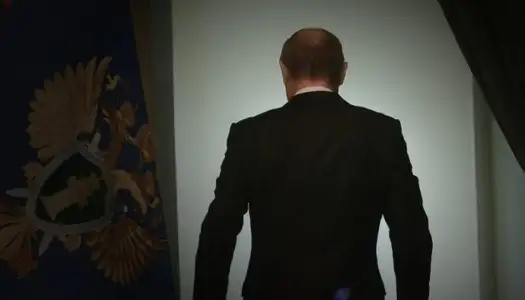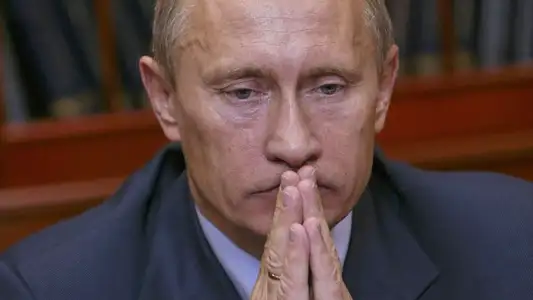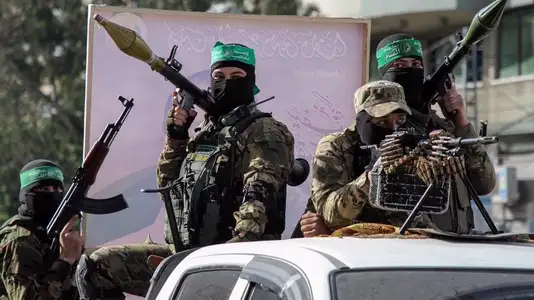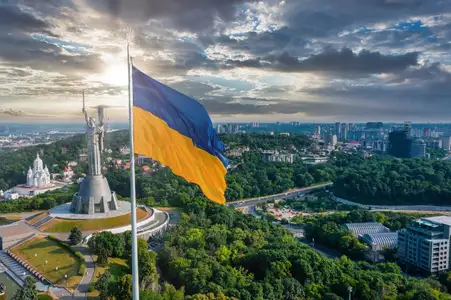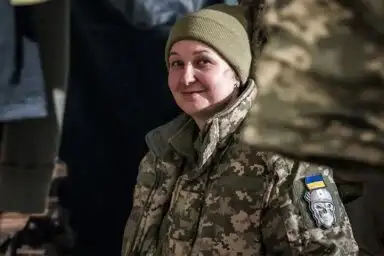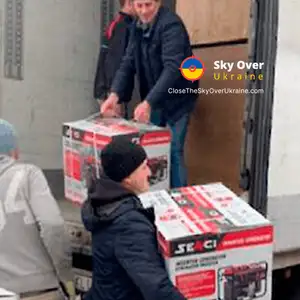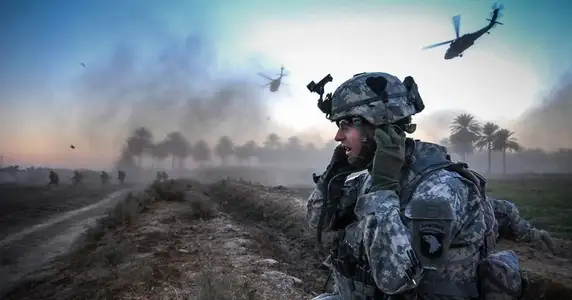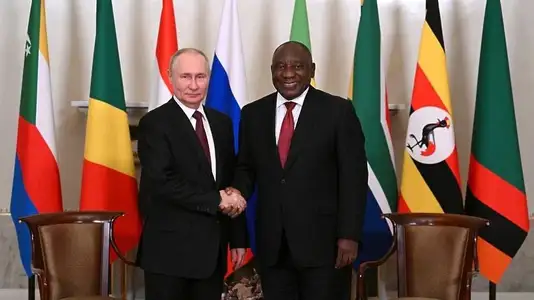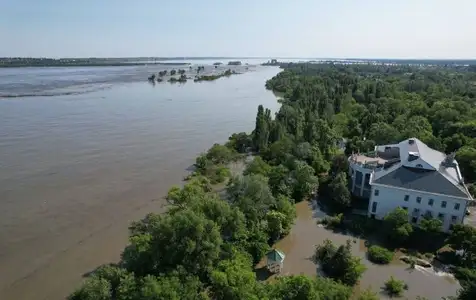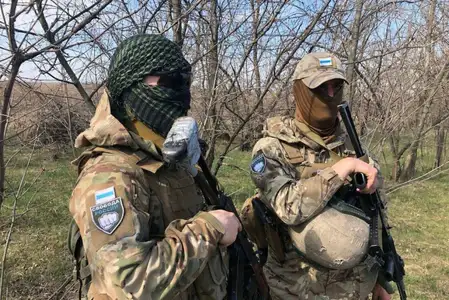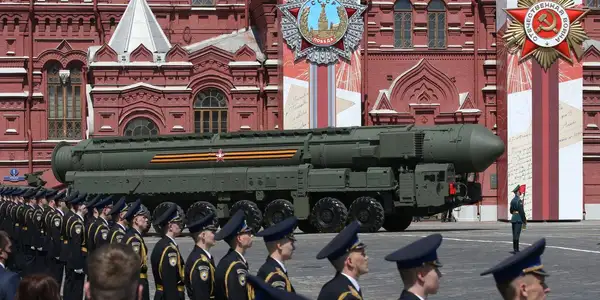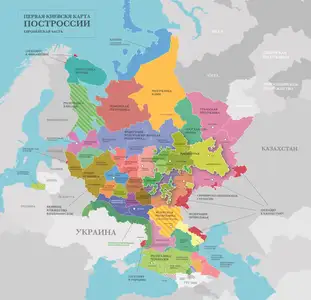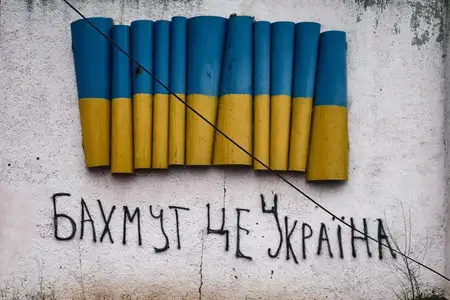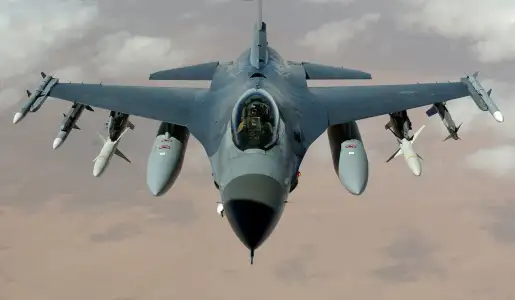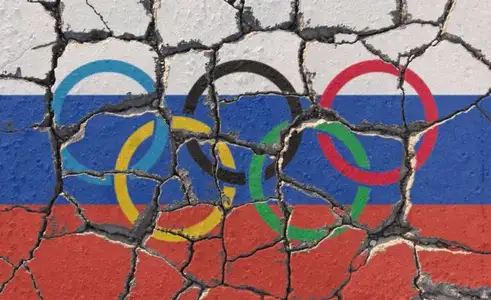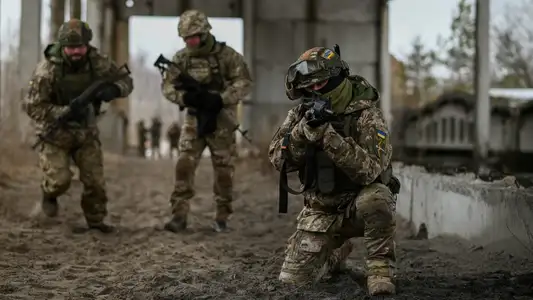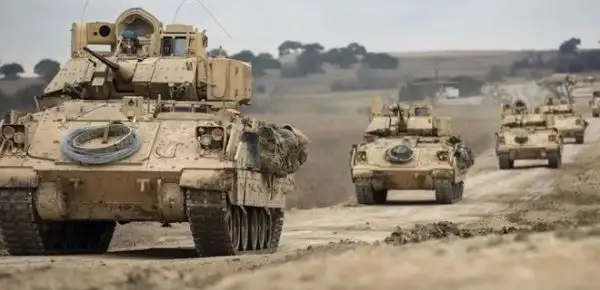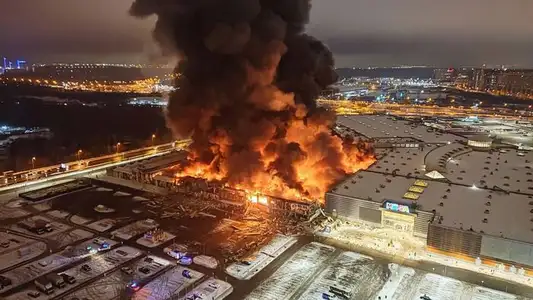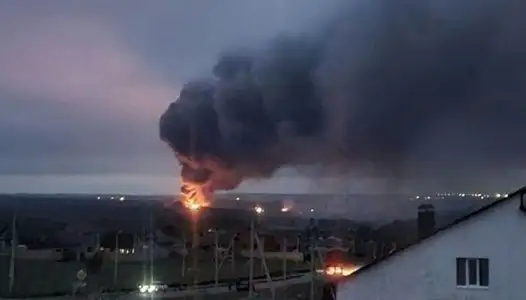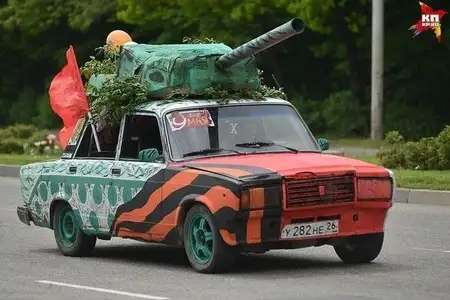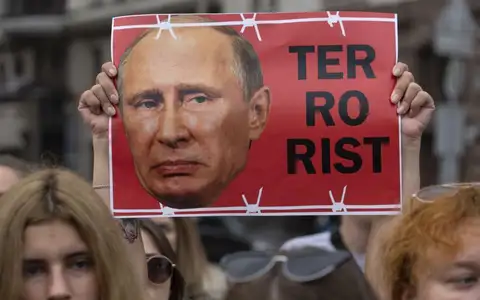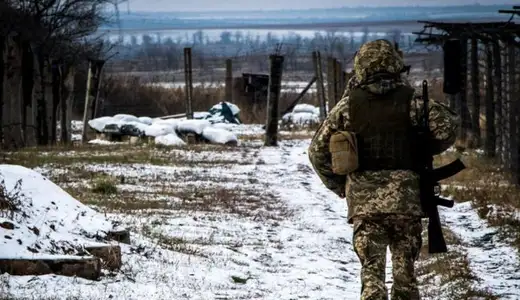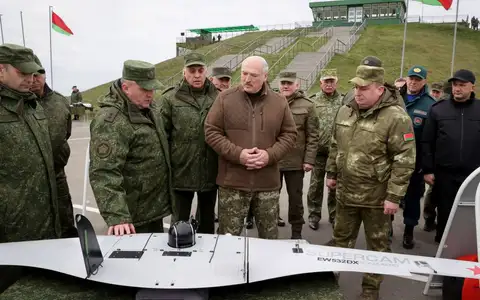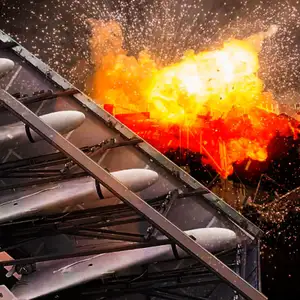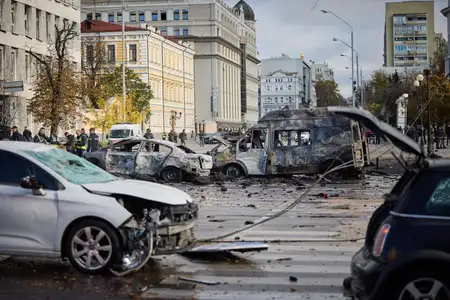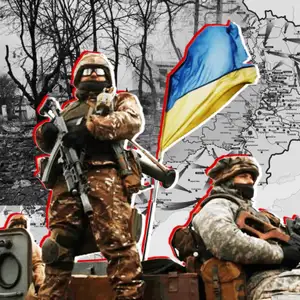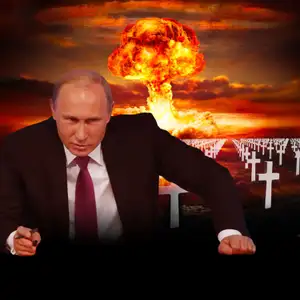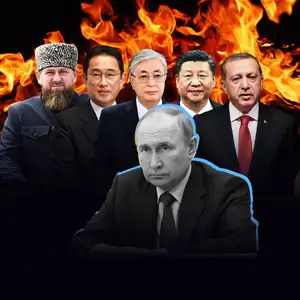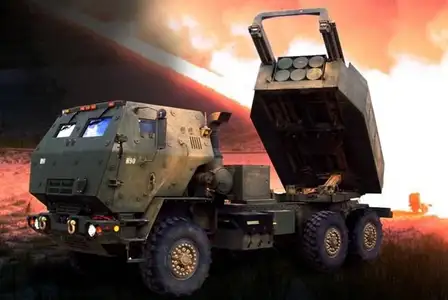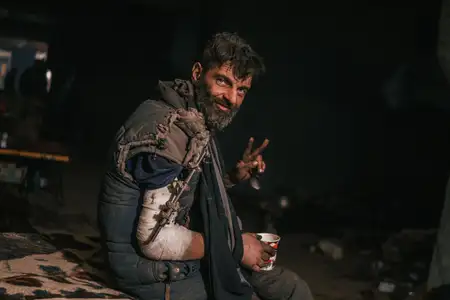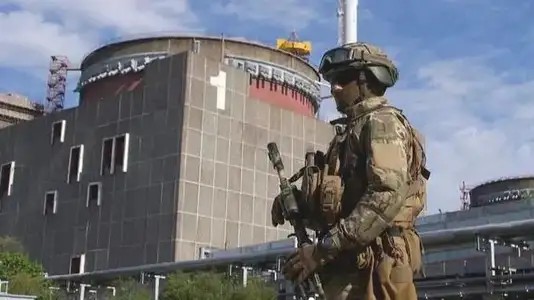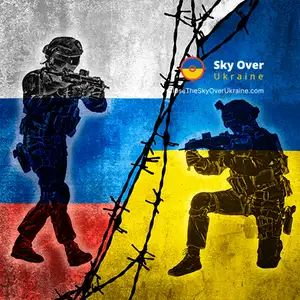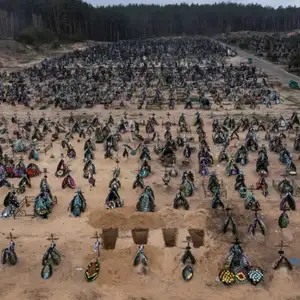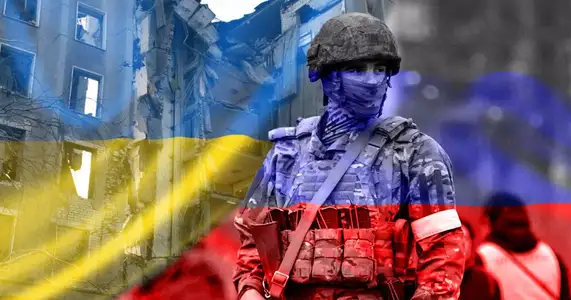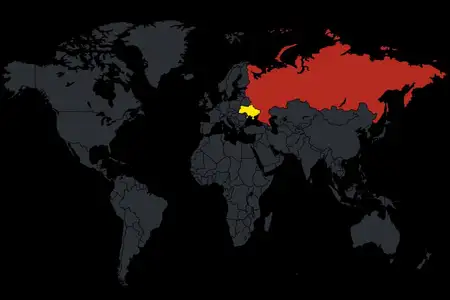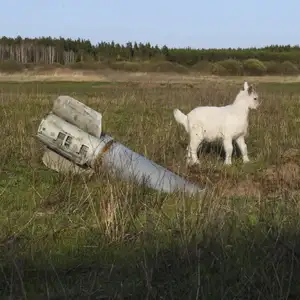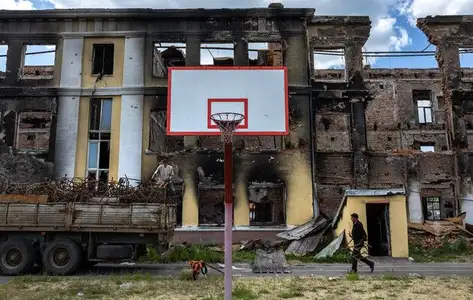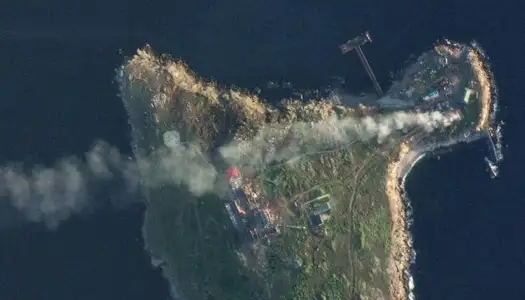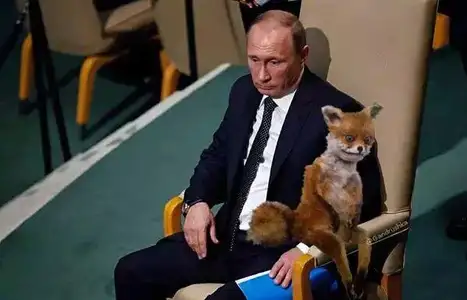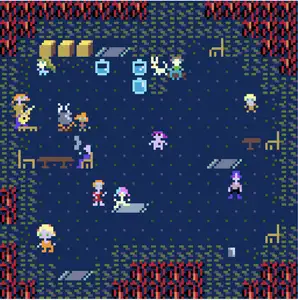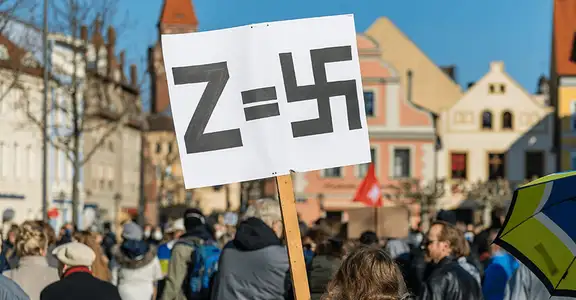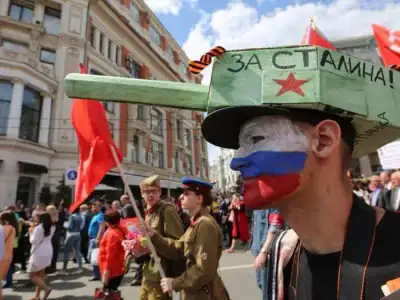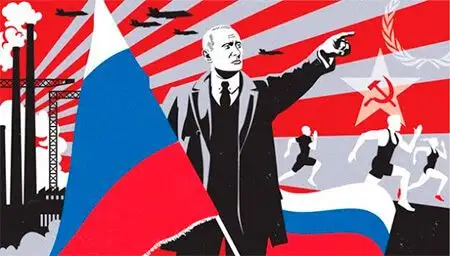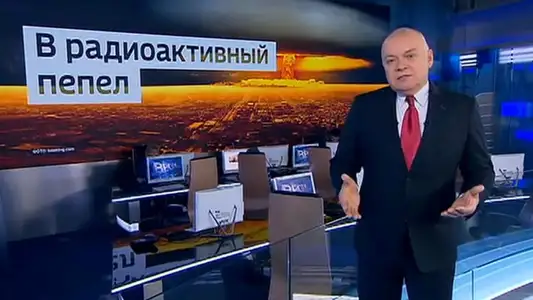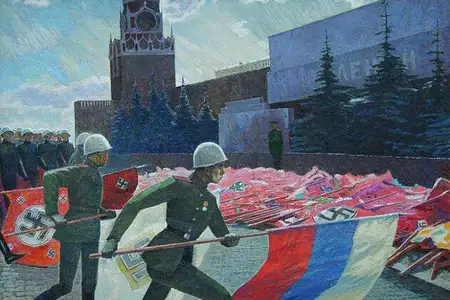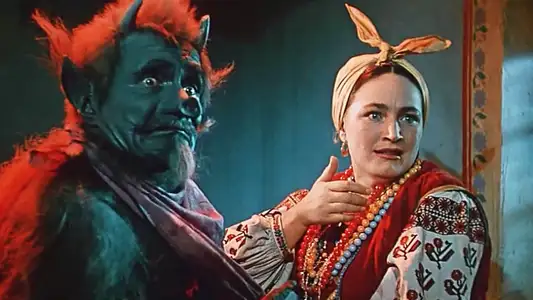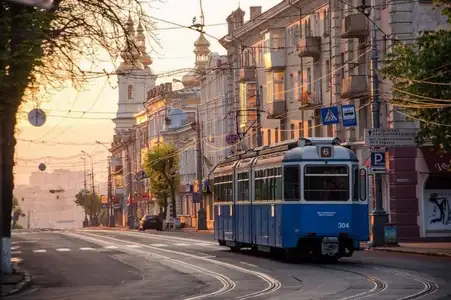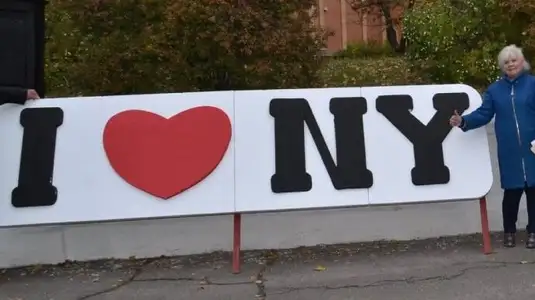Prigozhin's mutiny showed Putin's weakness to the whole world
Yevgeny Prigozhin and his Wagner Group last weekend made virtually a reality show of international scale. The 25,000-strong Wagner army went not to Kyiv, Lviv or Warsaw (as Russian propagandists like to say), but to Moscow! “Moscow in three days” became the most popular meme these days.
However, not having reached the capital 200 km away, the “insurgents” turned around and went in the opposite direction. The “mutiny” thus ended without actually starting, and certainly did not develop into a “coup”, “revolution” or “civil war”.
What it was and what all this strange situation really shows, let's try to understand today.
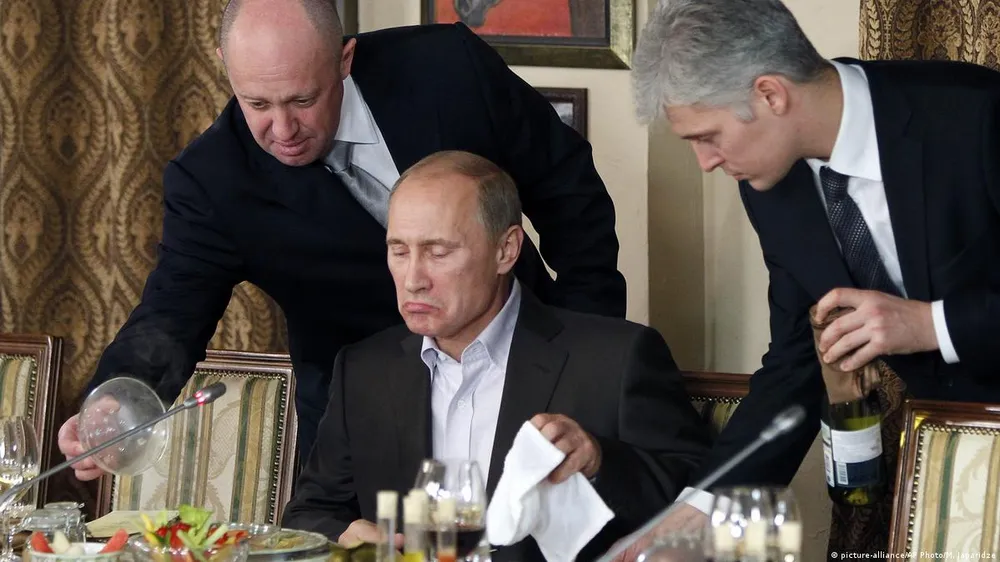
Yevgeny Prigozhin, “Putin's cook”
How Prigozhin rose against Putin
First of all, let’s recall that Yevgeny Prigozhin is a Russian businessman and oligarch, who not so long ago was a confidant of Russian President Vladimir Putin. He was also called “Putin's cook”, because he actually cooked for the president at one time.
In 2014, Prigozhin founded, in his own words, a “group of patriots” to support the separatists of the Donbas – the already well-known to us all Wagner Group (or Wagner Private Military Company). In the following years, the company's mercenaries took part in various conflicts around the world, including civil wars in Syria, Libya, the Central African Republic (CAR), and Mali.
The Wagner mercenaries are accused of war crimes in the areas where they are deployed. Among the accusations are rape and robbery of civilians, as well as torture of defectors. In 2022-2023, the governments of several countries recognized the Wagner PMC as a terrorist organization and imposed sanctions against it and Prigozhin.
Interestingly, in Russia itself this armed formation has an unclear legal status, because the Russian law does not provide for legal activities of such organizations. Consequently, the PMC fighters do not have the status of combatants and are not subject to relevant international norms.
Even more interesting for us is the fact that previously, in fact, the illegal Wagner Group was seen as a “private army of President Putin”. It was he who created all conditions for Prigozhin and gave him every opportunity to turn the PMC into a full-fledged combat-ready army – with well-trained fighters and a serious arsenal of equipment.
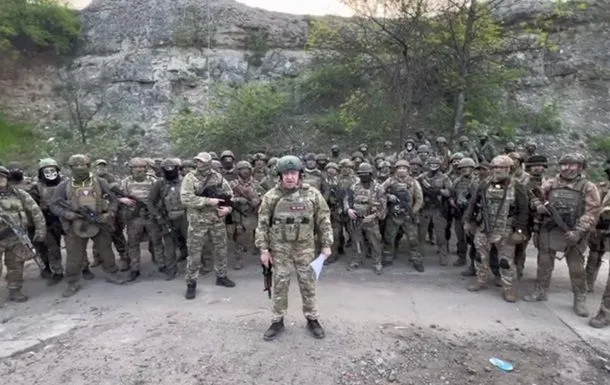
Prigozhin with Wagner fighters in Bakhmut
However, due to the difficult situation on the Ukrainian fronts, the lack of coordination and internal confrontation between units of the regular Russian army and the Wagner Group, the conflict between Prigozhin and the Defense Ministry was constantly exacerbated in recent months. The rift was getting deeper and deeper.
Prigozhin, who has solid media resources, regularly made video appeals in which he not only demanded to provide his mercenaries with more ammunition, but increasingly harshly criticized the military and political leadership of Russia. And he actually had a moral right to do so, because the Wagner PMC is one of the most combat-ready units of the Russian army.
So, we have witnessed how the Wagner Group has not only moved away from the Kremlin (which once fueled it), but from the “personal army of Putin” gradually turned into the opposing force against the Kremlin. And its leader, Yevgeny Prigozhin, turned from “Putin's cook” into his potential rival in the next presidential election.
A “Weekend Mutiny”: What was it?
It all began Friday morning, June 23, with a video in which Prigozhin stated that Russia had no reason to launch a full-scale offensive against Ukraine on February 24, 2022. As harsh as Prigozhin's criticism of the Russian Defense Ministry was earlier, the question of why Russia is fighting came up for the first time.
In the evening, videos of Wagner's allegedly defeated rear positions with a large number of mercenary casualties appeared on the Internet. Prigozhin blamed the strikes on the Russian army and vowed to go to Moscow and personally deal with the Russian Defense Ministry (literally “hang” Defense Minister Sergei Shoigu).
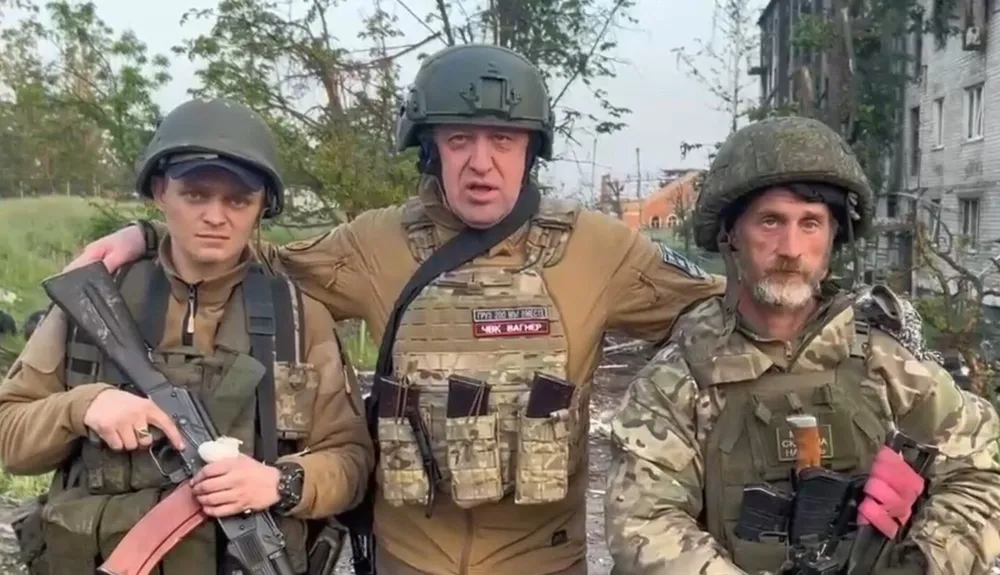
Prigozhin with Wagner fighters
Without any resistance at the Ukrainian-Russian border, the 25,000-strong Wagner convoy began its “march of justice” already on Russian territory. At the same time, propaganda programs on Russian TV were interrupted by special news broadcasts, during which all of Prigozhin's statements were called provocations.
It is worth noting that many observers and analysts, including Western ones, from the first hours directly called what was happening a military mutiny.
At night, Putin made a nervous video address in which, without calling Prigozhin by his name, he said that he was a traitor, and also called what was happening a “mutiny”. We will come back to this address later.
Without encountering any resistance from the local military (whose units consist mostly of conscripts), the Wagner forces reached the regional center, the city of Rostov, and actually seized it on the morning of June 24.
Prigozhin claimed in another video that military facilities in Rostov, in particular the airfield, were under their control. One of the symbols of this “rebellion” was a tank in the gate of the circus. This is how the Wagner fighters tried to block the approaches to the Rostov General Staff.
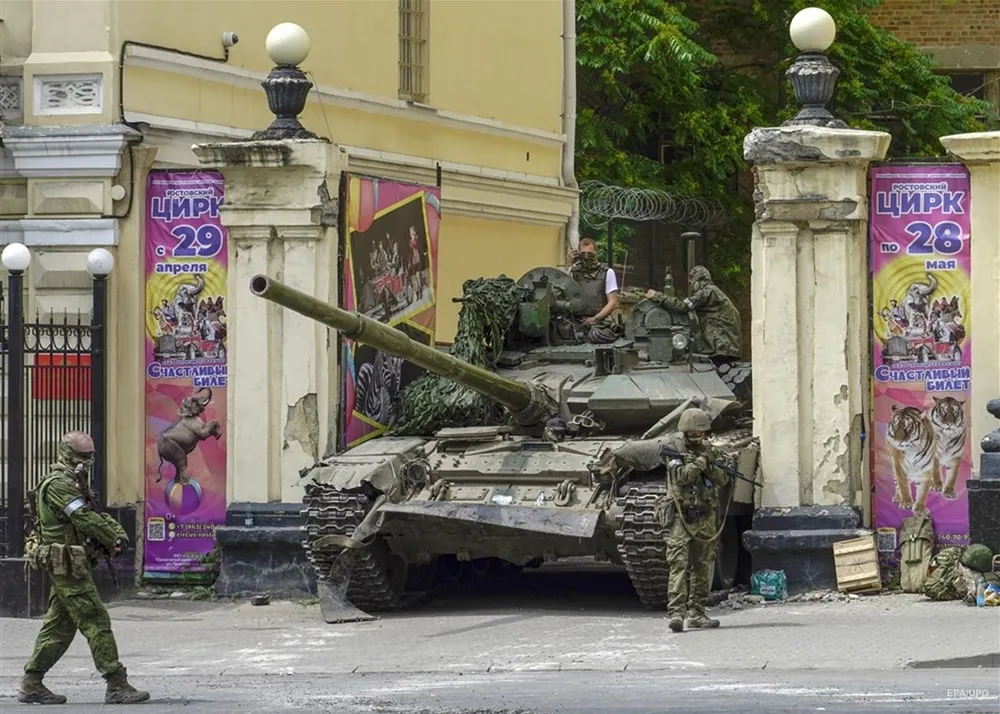
Wagner tank in the circus in Rostov, June 24
Part of the Wagner convoy (together with Prigozhin) remained in Rostov. The strike group continued towards Moscow. The trucks, which were installed to block the road, were simply pushed apart and the convoy moved on.
At the same time, the Wagner forces, who have in their arsenal not only tanks and armored vehicles but also air defense systems, began shooting down Russian aviation. According to Oryx, the “insurgents” shot down six Russian attack helicopters and an Il-22M aircraft, called an “air command post”. According to Russian media reports, 15 to 20 Russian servicemen were killed. In addition, an oil depot in Voronezh was destroyed.
Meanwhile, an anti-terrorist operation was declared in Moscow, the highway to the Russian capital was hastily dug up, and machine guns and armored vehicles were mounted on the approaches to the site. It is noteworthy that the oligarchs immediately left the city in a hurry. Putin also took Prime Minister Mishustin and flew to his residence in Valday (which reminds us of the exact opposite behavior of Volodymyr Zelensky in Kyiv during the first hours and days of the full-scale invasion).
The world community was already eager to believe that the “insurgents” were about to reach Moscow, and at this rate it would be possible to “take” it even in less than three days!
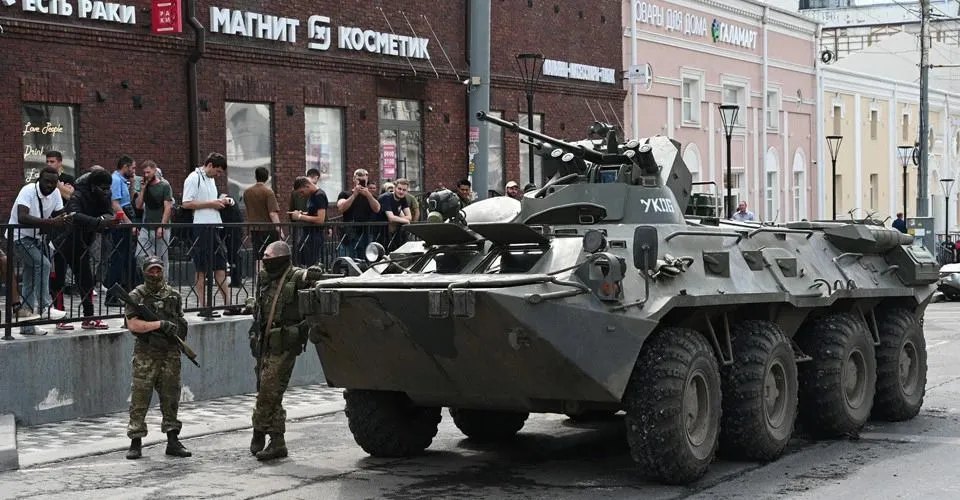
But... The Wagner convoy unexpectedly stopped at 200 km far from Moscow. Did Prigozhin change his mind? It turns out that Alexander Lukashenko, the self-proclaimed president of Belarus, intervened in the situation. He spent the whole day trying to persuade Prigozhin to retreat, “so that no Russian blood would be spilled”.
In the end, Prigozhin made a statement: “Within a day we had marched, not reaching 200 km to Moscow. During this time, we have not spilled a single drop of blood (!) of our fighters. Now the moment has come when blood can be spilled. Therefore, realizing all the responsibility for the fact that Russian blood will be spilled on one side (!), we are turning our convoy around and leaving in the opposite direction, to the field camps according to the plan (!!!)”
In other words: “The show is over”.
This statement has caused confusion to absolutely everyone – both supporters and opponents of Prigozhin. What made him change his plan so urgently? Or was it like that from the beginning? If it was a large-scale staging, what was its purpose?..
Next, Prigozhin announced that he was moving to Belarus at Lukashenko's personal invitation with Putin's consent. On June 27, it was reported that Prigozhin's flight landed in Belarus. It's still unknown what Prigozhin is going to do there, and whether or not Wagner Group is going to move there.
However, it is known that the Russian Federal Security Service has terminated the criminal investigation into the armed mutiny of the owner of the Wagner PMC and his fighters. The Kremlin also promised not to prosecute the rebels, and it is even reported that some of the Wagner members are likely to sign a contract with the Defense Ministry (that is, to legally become part of the Russian armed forces). This leads us to believe that Prigozhin's main goal was to get guarantees of his security, which he probably received from Putin through Lukashenko. And that means that there are really no guarantees of security for him.
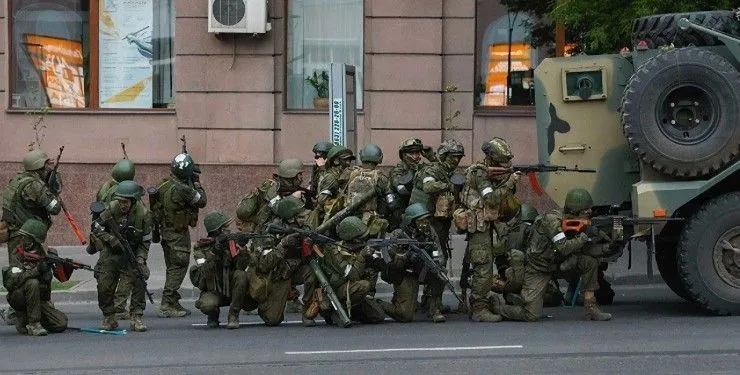
Although the mutiny was not successful, it demonstrated the Kremlin's weakness
We will not go into a discussion of Prigozhin's true goals and intentions here. What is interesting for us now is that the whole situation has clearly demonstrated how weak and shaky the system built by Putin is.
- Putin's video addresses
In his first address, the dictator directly stated that there is a “military mutiny”, that it is a betrayal and a “stab in the back”, and even recalled the Russian revolution of 1917 (which in fact was successful). Putin stressed that all the perpetrators and participants will be punished.
And despite the fact that he threatened all the “insurgents” with reprisals, he admitted that only 25 thousand armed people are a real threat to the Kremlin. In fact, Putin acknowledged the weakness of his power. An almighty dictator (which Putin aspires to be) cannot afford to say that. Especially when his “second army in the world” has been fighting on the territory of another state for a year and a half.
On June 26 and 27, after the end of the mutiny, Putin made two more addresses. Although the pro-war public expected something “life-changing” from them, Putin again showed his spinelessness and did not say anything about any specific, decisive steps (such as personnel reshuffles), but only thanked everyone who “helped save the country”.
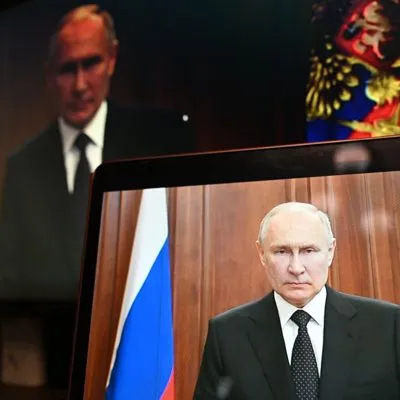
- The almost unhindered advance of the Wagner forces
The main question is: Why didn't anyone stop the Wagner troops? First, because of fear and confusion. Second, because of the complete breakdown of the system, uncontrolled and uncoordinated actions both in the regions and in the capital. In Russia, neither the FSB (Federal Security Service), nor the Rosgvardiya and the police are able to properly perform their functions.
In addition, the rapid “march of justice” revealed that there are few military units left in Russia itself! Most of the units and equipment are deployed at the fronts. There would be nothing and no one to defend the huge city of Moscow.
After all, the Rosgvardiya (in fact, the internal troops) and the security forces (FSB and FSO, Federal Security Guard Service) are not prepared for real combat operations, as their main task is to fight unarmed “enemies” inside the state – mostly peaceful protesters. It is unlikely that they would be able to do anything against the well-trained and seriously experienced Wagner fighters. So, if Prigozhin had had the will, he would most likely have been able to establish control over Moscow (he himself said so in one of his addresses).
- “Amnesty” for Prigozhin
Despite his first harsh statement that all “insurgents” will be punished, now Putin freely allows the main instigator to go to Belarus, closes the criminal case against him, and promises to pardon all the Wagner fighters. Here again, Putin has shown his inconsistency and lack of firmness.
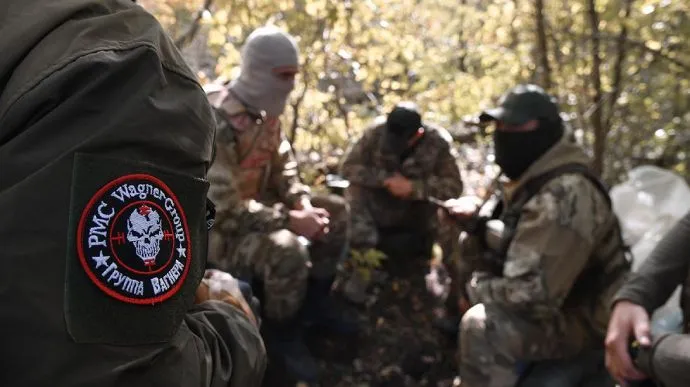
- Numerous complaints from the Z-community are the best reflection of Putin's punctures
The main complaint of the Z-community (Russians who support the war) is that Moscow is completely unprepared for an offensive by anyone – there are no defense lines or trained personnel. “What if the Ukrainians break through the front tomorrow? Will they also reach Moscow unhindered in one day?” the Z-patriots ask a reasonable question.
They also resent the fact that the Wagner fighters have not been punished for the damage they have done – above all, for destroying several helicopters, aircraft, and their crews (see the previous paragraph). From this, they draw several conclusions: 1) You can march on Moscow with impunity and practically unhindered; 2) The authorities are not ready to stand up for the pro-war public; 3) The Russian authorities do not pay much attention to the losses of their army.
The “milbloggers” also harshly criticize the oligarchs and top officials (including Putin himself) who fled Moscow as soon as the threat appeared. This, too, shows that they are not confident that their security forces can protect them.
There are also many questions for the Russian special services: how did they “sleep through” Prigozhin's plans? On the contrary, “milbloggers” note that the special services of Western countries now have a lot of valuable information.
Another grievance of the Z-community is that the negotiations with Prigozhin were conducted not by Putin personally, but by Lukashenko on his behalf. That is, Putin, in a sense, lost his subjectivity in this conflict. He initially came out with a loud statement, which was not followed by any decisive action, and the resolution of the conflict was somehow shifted onto Lukashenko's shoulders.
Thus, although the “march of justice” as a mutiny was not successful, it strongly hit the federal center and the vertical of power, revealing its weaknesses to the whole world.
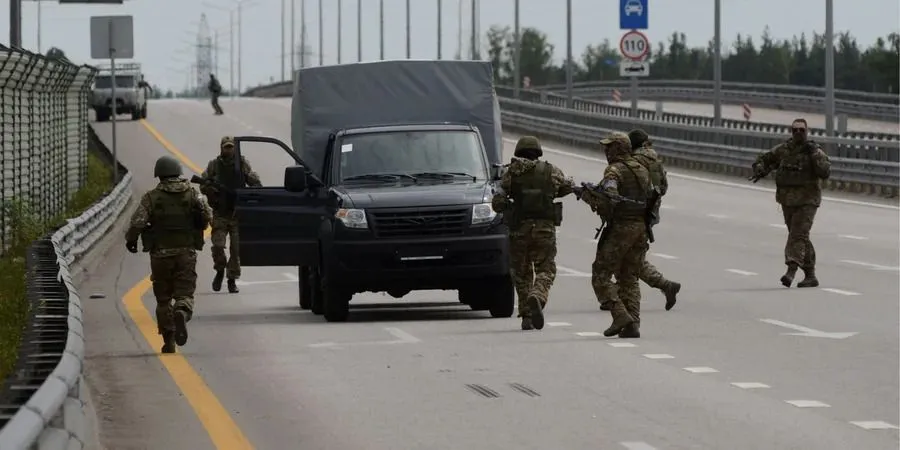
- And the world community also noted the Kremlin's weakness
French President Emmanuel Macron said the riot showed the fragility of the Russian army as well as “its auxiliary forces, such as the Wagner PMC”. He added that “all this should make us very vigilant and fully justify the support we give the Ukrainians in their resistance”.
U.S. Secretary of State Anthony Blinken said that the chaos caused by Prigozhin's mutiny could continue for weeks or months. Tensions in Russia have been rising for months, and the effectiveness of the Russian military in Ukraine could be threatened.
NATO Secretary General Jens Stoltenberg spoke even more globally. He noted that these events show what big a strategic mistake Russian dictator Vladimir Putin made when he started the war against Ukraine.
It is worth noting that U.S. intelligence was surprised that the Russian regular army offered so little resistance while confronting Wagner troops. Even more surprising to U.S. intelligence was the speed with which the agreement between Prigozhin and the Kremlin was made.
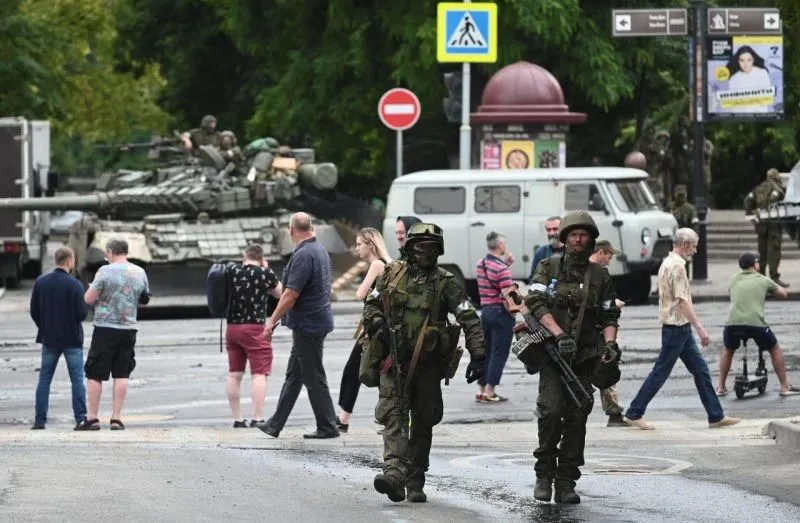
How will this story affect the course of the war?
Most likely, it won’t. In Ukraine, we observed what was happening with justifiable skepticism and did not expect anything “supernatural”. First, Ukrainians have little faith in the possibility of an uprising in Russia. Second, we have a priori no trust in the Russians, no matter how well they talk about the Ukrainian Armed Forces and badly about Putin (as Prigozhin did). For us, they are the enemy.
As for the military situation, the main Wagner forces left their positions almost a month ago. After that, counteroffensive operations by the AFU began, including those near Bakhmut. With or without Wagner Group, the Ukrainian offensive will proceed as it should.
It is important that Western partners, the U.S. and other NATO countries, emphasize that whatever processes take place in Russia, they will continue to support Ukraine.
So whatever uprisings or conflicts happen in Russia and whatever “bonuses” it gives us, we continue to do our job without counting on anything drastically changing in Russia anytime soon.
Anastasiya Glotova
